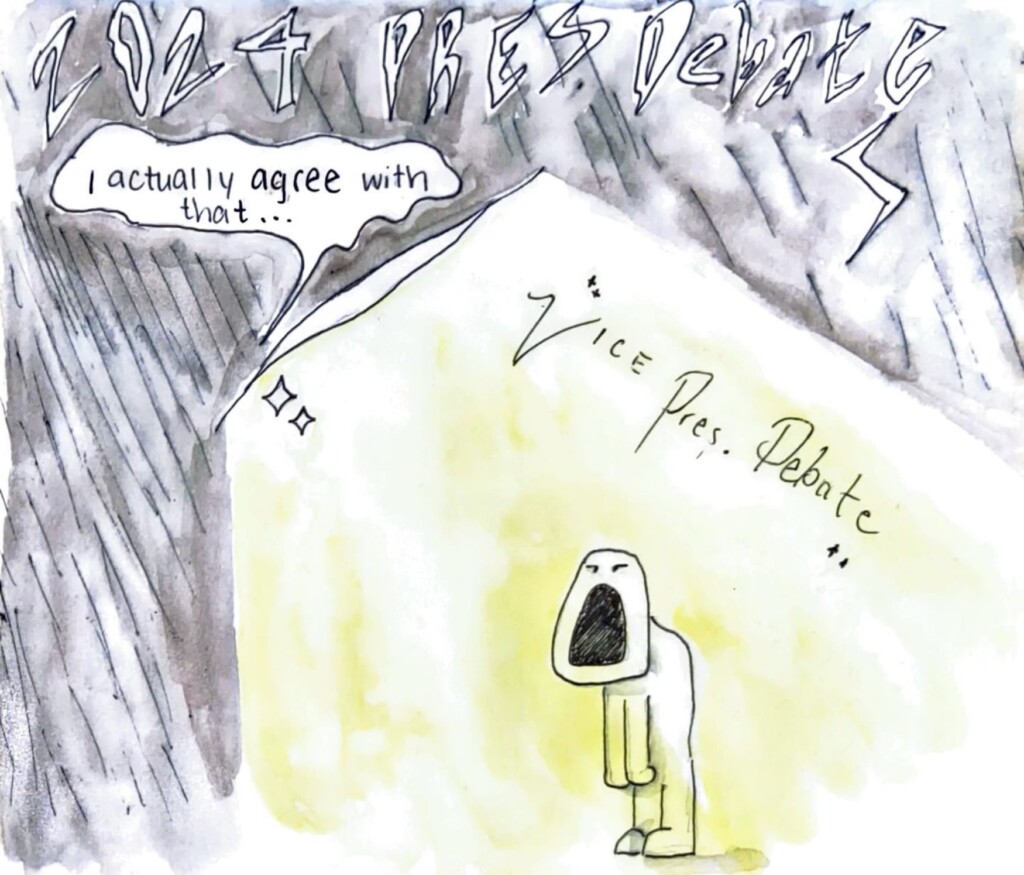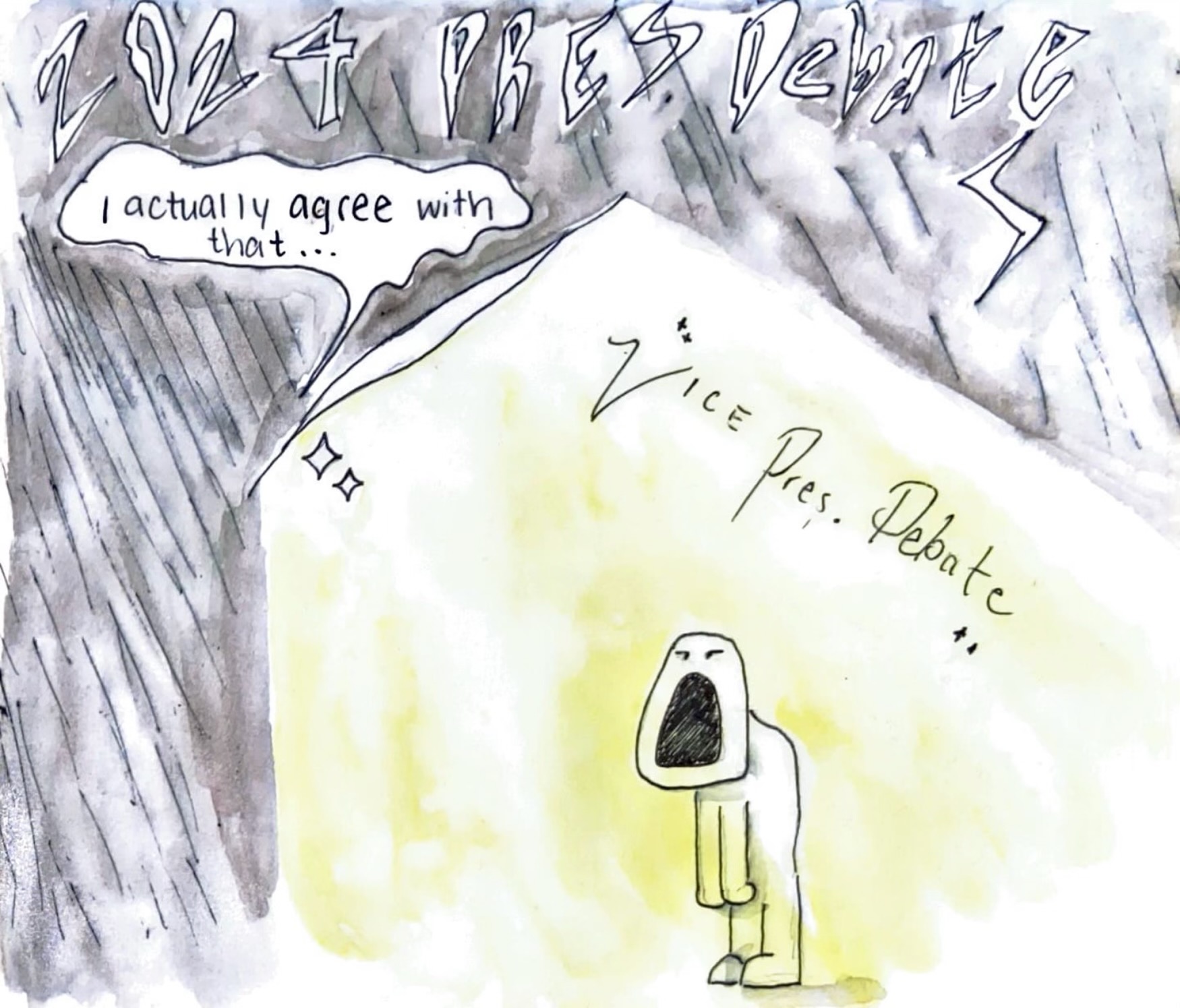I never thought that, seeing recent political events, I would call a debate “refreshing.” But after this past Tuesday, it was exactly that.
The debate was a perfect mix of policy, personal criticism, and … politeness? I would argue it was probably the most constructive and civil debate since 2012, when Obama and Romney were vying for the presidency.
JD Vance served up a clear choice between Trump and Harris, breaking from his boss’s often untraditional debate style. He laid out clear policy action points on much of what I was seeking, particularly on inflation and foreign policy.
Walz, on the flip side, didn’t do bad. While he did seem nervous on the front stretch of the debate, he came in strong later, with the debate hardly ending in a rout. His handling of topics like abortion provided more stable ground for his arguments later on, and his questioning of Vance about January 6th helped level the playing field towards the end of the night.
I would say the most astounding part of the debate was the return to normalcy. In the words of Walz, things are getting pretty “weird” these days. To see a strong change in debate performance and outcome definitely brings more hope for our current system.
While it definitely is not the end-all be-all to our current political climate, it showed a generation of young people what politics used to be like before the era of Donald Trump. I did wonder one thing while watching the debate: What will the Republican party look like post-Donald Trump?
It seems that much of the Republican platform is founded in what I like to call “Trumpism,” or the theory of a policy completely crafted by one individual’s beliefs. Trumpism more generally is the decision making power of Donald Trump over the values or mainstream beliefs of the Republican party. An example of this could be on the topic of the economy, where Trump has supported tariffs on foreign powers, even though fiscal restraints are against mainstream Republican values.
Vance’s performance and calm demeanor provides a light into what could be a turning point for the Republican party. Hopefully, this turning point will mix his demeanor and style with a different approach to crafting party platforms in future elections, and tossing Trumpism for holistic party building.
Now, many factors have to be taken into account before we make these broad generalizations of what the future could look like. We can’t forget that, only months ago, a former president was almost assassinated, a current president stepped down from his re-election bid, and a vice president who didn’t receive a single primary vote is now vying for the most powerful position in the country. With this in mind, we must remember that anything can happen.
So, the debate was not the final answer bearing forum for the American people. Rather, it was a sliver of light into an uncertain country and election. I do wonder whether both presidential candidates will appeal more to younger voters, specifically in regards to the economy. With an ever-growing national debt, inflation rate, and lack of economic growth in youth demographics, it will be interesting to see what 30 days can do to turn the tide, especially seeing that no comprehensive economic plans have really been let out by both parties.
With October here, surprises could be just around the corner. In 2016, the Trump access Hollywood tape and the Clinton email scandal jolted voters in the lead up to election day. These events can dramatically alter undecided and independent voters’ minds before the election. If the VP debate did not achieve the persuasion goal, October would be the time for both the campaigns to “seal the deal” so to speak.
Let’s see if anything of such a proportion could emerge in 2024. Voters are always begging for a “normal” election cycle and the want for simplicity. But as we witnessed with the vice presidential debate, people are yearning for chaos to compel their decision making. Let’s see if it matters.



